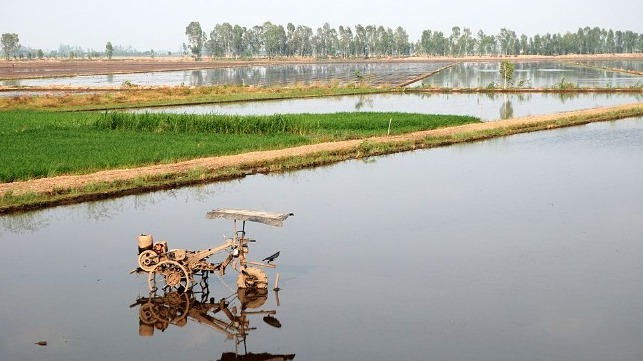Dams and Dredging Mean Bad News for Vietnam's Mekong Delta

[By Milton Osborne]
The release of recent research from the Netherlands adds an additional insight into what is happening in Vietnam’s Mekong Delta, the country’s all-important food producing region that contributes some fifty per cent to its agricultural GDP. In a stark conclusion the research cites 2050 as the Tipping Point when the delta will no longer be able to cope with salt water intrusions, a phenomenon that is already causing the los of productive land.
What is of particular interest in the research that has been pursued for more than a decade is the conclusion that to date climate change is responsible for only about five per cent of the delta’s current problems. Rather, it argues that until now the chief culprits are the dams that have been built on the Mekong’s mainstream in China and Laos—11 in China and two so far in Laos—plus the upwards of 300 dams that have been constructed on the tributaries that flow into the Mekong. This multiplicity of barriers has led to a sharp decline in the flow of sediment down the Mekong as it reaches the delta, robbing the region of vital nutrients, and no longer adding new topsoil to the land while playing a part in ridding the delta of damaging insect pests.
Without the added topsoil that once accompanied the flood flows the delta has become increasingly vulnerable to salt water incursions that have accompanied water level rises. But for the moment these rises in sea levels are less immediately important than the effects that have followed large-scale sand mining, most importantly in Cambodia but also in Laos, Thailand and Vietnam itself. With a building boom over the past decade in those countries supply of sand is vital for construction, but removing sand from the Mekong means that the riverbed becomes deeper, water flows more quickly and scours the regions that are then exposed to salt water incursions in the dry season.
None of the conclusions just summarised should be taken as minimising the longer-term threats associated with climate change. Rather the effects of the dams on the Mekong and its tributaries plus the impact of sand mining are setting up a situation in which climate change will be even more likely to wreak its damaging effects in 2050.
Dr Milton Osborne was a Nonresident Fellow at the Lowy Institute for International Policy. He has been associated with Southeast Asia for nearly sixty years since being posted to the Australian Embassy in Phnom Penh in 1959. A graduate of Sydney and Cornell Universities (University Medallist and Fulbright Scholar, respectively), he has held academic positions in Australia, the United Kingdom, the United States and Singapore.
This article appears courtesy of The Interpreter and may be found in its original form here.
Top image: Rice paddies in the Mekong River Delta (Thomas Schoch / CC BY SA 3.0)
The opinions expressed herein are the author's and not necessarily those of The Maritime Executive.
